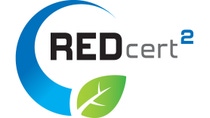Sustainability
BASF is the first chemical company to certify biomass balanced products according to the new REDcert2 standard for the chemical industry
January 22, 2019
BASF is going to certify its biomass balanced products according to the new REDcert2 standard for the chemical industry by the end of 2019 – thereby, it will be the first company in the industry.
In the biomass balance procedure, fossil resources are replaced with renewables in the very first step of the production process and attributed to the respective product. The method, which was developed by BASF together with an external certification body, drives the use of renewable raw materials, saves fossil resources and reduces greenhouse gas emissions. The formulation and quality of the corresponding end products remain unchanged. The new REDcert2 standard ensures the correct attribution of renewable resources in BASF’s value chain.
Saving fossil resources and reducing greenhouse gas emissions have a high relevance for today’s producers and consumers. Since 2013, BASF supports its customers in pursuing their sustainability goals with the biomass balance approach: “With the development of our biomass balance approach for the use of renewable feedstock, BASF has broken new ground in the chemical industry,” says Dr. Christian Krueger from Applied Sustainability at BASF. “The approach allows to replace fossil with renewable resources in BASF’s value chain.”

Certificate confirms correct biomass allocation
To ensure that the exact requested amount of renewable resources was used to produce a certain good, a certified allocation procedure is needed. This standard was developed by BASF together with an independent certification provider in 2013. It ensures that the respective amount of biomass inserted into the BASF-Verbund production process is correctly attributed to the products that customers buy from BASF. Also, it ensures that only feedstock with an acknowledged sustainability certificate can be inserted into the production process. Since 2018, BASF transfers the certification to the new European REDcert2 standard and has already received the first certificate end of 2018.
Learn more about the certification process from the experts in our video.
REDcert2: Setting a global standard for the use of renewable resources
In 2018, BASF committed itself to certify all biomass balanced products according to the new REDcert2 standard for chemical products by the end of 2019. The new systematization is based on the REDcert-EU standard which is compliant with the EU Directive on Renewable Energy. “BASF is the first company in the chemical industry to certify a product according to REDcert2 standard,” says Reinhard Baumgartner, auditor in the evaluation process to verify the correct allocation of biomass.

Independent evaluation of the Life Cycle Assessment
Besides the certification according to the new REDcert2 standard, the life cycle assessment of biomass balanced products – so to say, the evaluation of their actual contribution for sustainability – can also be checked. This is done by non-governmental organizations such as Öko-Institut. “BASF aligns the concept of its products’ life cycle assessments with the internationally recognized norms ISO14040 and ISO14044. These norms regulate how life cycle assessments should be carried out,” says Florian Antony, research associate at Öko-Institut. “Since this is perspectively also targeted for biomass balanced products, BASF has conducted a life cycle assessment. As independent critical review panel, we were commissioned with checking and creating a statement about it. In our detailed statement („Statement on the usage of biogenic resources in the dispersion paints Indeko Geo und CapaTrend Geo“), we conclude that the final study report contains no direct contradictions with the requirements as set out by the ISO standards and the study can be considered ISO 1404/44 compliant. Nonetheless it is mandatory to transparently communicate corresponding assumptions and their influence on results and conclusions, as e.g. the inclusion and assessment of biogenic carbon uptake in the biobased feedstocks, including wastederived raw materials otherwise treated as burdenfree.”
Upon request the review statement is available from the study commissioner.
The biomass balance approach enables manufacturers to offer customers with awareness for sustainability an appropriate product. Learn more about certification options here.

